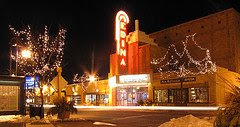Book 13 (Kshitij & Andre)
Significant Passages: Book 14 Passage 1 “You must be a fool, stranger, or come from nowhere, if you really have to ask what land this is. Trust me, it’s not so nameless after all. It’s known the world around, to all who live to the east and rising sun and to all who face the western mists and darkness. It’s a rugged land, too cramped for driving horses, but though it’s far from broad, it’s hardly poor. There’s plenty of grain for bread, grapes for wine, the rains never fail and the dewfall’s healthy. Good country for goats, good for cattle too— there’s stand on stand of timber and water runs in streambeds through the year” (14.269-81) Significance 1 Poor Odysseus has been away from Ithaca for so long, that he doesn’t even remember the land he loved the most and governed. This, I believe, is a significant passage because it provides an insight into Odysseus’s character. Although all Odysseus has been thinking of is Ithaca, when he is finally home, he doesn’t recognize it. This shows that he has been so preoccupied that he might have almost forgotten where he’s going, and just is doing what his brain is telling him to do, without going over it again. Passage 2 “King of the dark cloud,: the earthquake god agreed, “I’d like to avenge myself at once, as you advise, But I’ve always feared your wrath and shield away. But now I’ll crush that fine Phaeacian cutter” Significance 2 This passage was significant because it represented a change from The Iliad. In The Iliad Poseidon threatens to defy Zeus’s command to cease helping the Achaeans, but now, however, Poseidon is openly expressing his fear of his own brother, even though they are almost equal in power. This passage is also significant, because it shows that prophecies are never wrong. A few lines later, after the destruction of the ship, Alcinous says, “Oh no—my father’s prophecy years ago” (14.195) has come true. This passage also very well expresses Homer’s writing (speaking) style, because in this short passage there are two epithets: “earthquake god” and “Phaeacian cutter”. Passage 3 “Those men who court your wife and waste your goods? Ihave a feeling some will splatter your ample floors with all their blood and brains.” (14.452-53) Significance 3 This passage creates a topic that the reader can ponder over for a few moments. This passage makes you wonder if Odysseus will be betrayed by his wife and her new lover, like Agamemonon, or she will embrace her long lost husband with love and warmth. It also makes you wonder what Athena will do to help Odysseus to find a plot against his life, upon his return. Monomyth This chapter of the book pertains to the return home element of the Monomyth Hero Quest Pattern. In this chapter Odysseus finally returns to the land of Ithaca, his home land, which is basically the return home element. “Ithaca… Heart racing, Odysseus that great exile/ filled with joy to hear Athena…” (13. 285-286). This quote tells of how Athena had told Odysseus that he finally returned home.
(Book 13: Katherine C.)
Quotes
“His tale was over now. The Phaeacians all fell silent, hushed, / his story holding them spellbound down the shadowed halls / until Alcinous found the poise to say, ‘Odysseus, / now that you have come to my bronze-floored house, my vaulted roofs, I know you won’t be driven / off your course, nothing can hold you back – / however much you’ve suffered, you’ll sail home’” (13. 1-7).
I chose this quote because it is signifying the end of Odysseus’ troubles. This passage shows the reader that Odysseus will get home and back to his family. Alcinous says that he will finally sail home and will not be held back. Odysseus has been held back by endless troubles and has only wanted to get home, so when Alcinous says this, Odysseus finally has hope to get back to Ithaca.
“And then, that hour the star rose up, / the clearest, brightest star, that always heralds / the newborn light of day, the deep-sea-going ship / made landfall on the island . . . Ithaca, at last” (13. 105-108).
I think this quote is significant because it is when Odysseus’ ship finally arrives at Ithaca. He battled giants and cyclops for years at sea after sailing away from Troy, and he has finally gotten back home. This event is one of the major ones in the whole book leading up to the climax.
“But the bright-eyed goddess reassured him firmly: / ‘No need for anguish, trust me, not for him- / I escorted your son myself / so he might make his name by sailing there’” (13. 479-483).
This quote is when Athena is talking about Telemachus being away looking for clues about his father’s fate. Before this, Odysseus is wondering what has happened to Telemachus and where he is, Athena tells him that he has gone to search for Odysseus. Finding out about this tells Odysseus that his family has just been waiting for him to get home and they haven’t completely forgotten about him.
Monomyth
The part of the hero quest pattern that book 13 fits into is when the hero loses their supernatural guide. At the end of the book, Athena, who has been Odysseus’ guide, turns him into a beggar to disguise him. After that they go their separate ways. The last few lines are, “All plans made, / they went their separate ways – Athena setting off / to bring Telemachus home from hallowed Lacedaemon” (13. 502-504). This tells you that Athena is going to bring back Telemachus while Odysseus stays in Ithaca. So, Odysseus must keep going without the help of Athena until she gets back with Telemachus.
Friday, October 3, 2008
Subscribe to:
Post Comments (Atom)

No comments:
Post a Comment